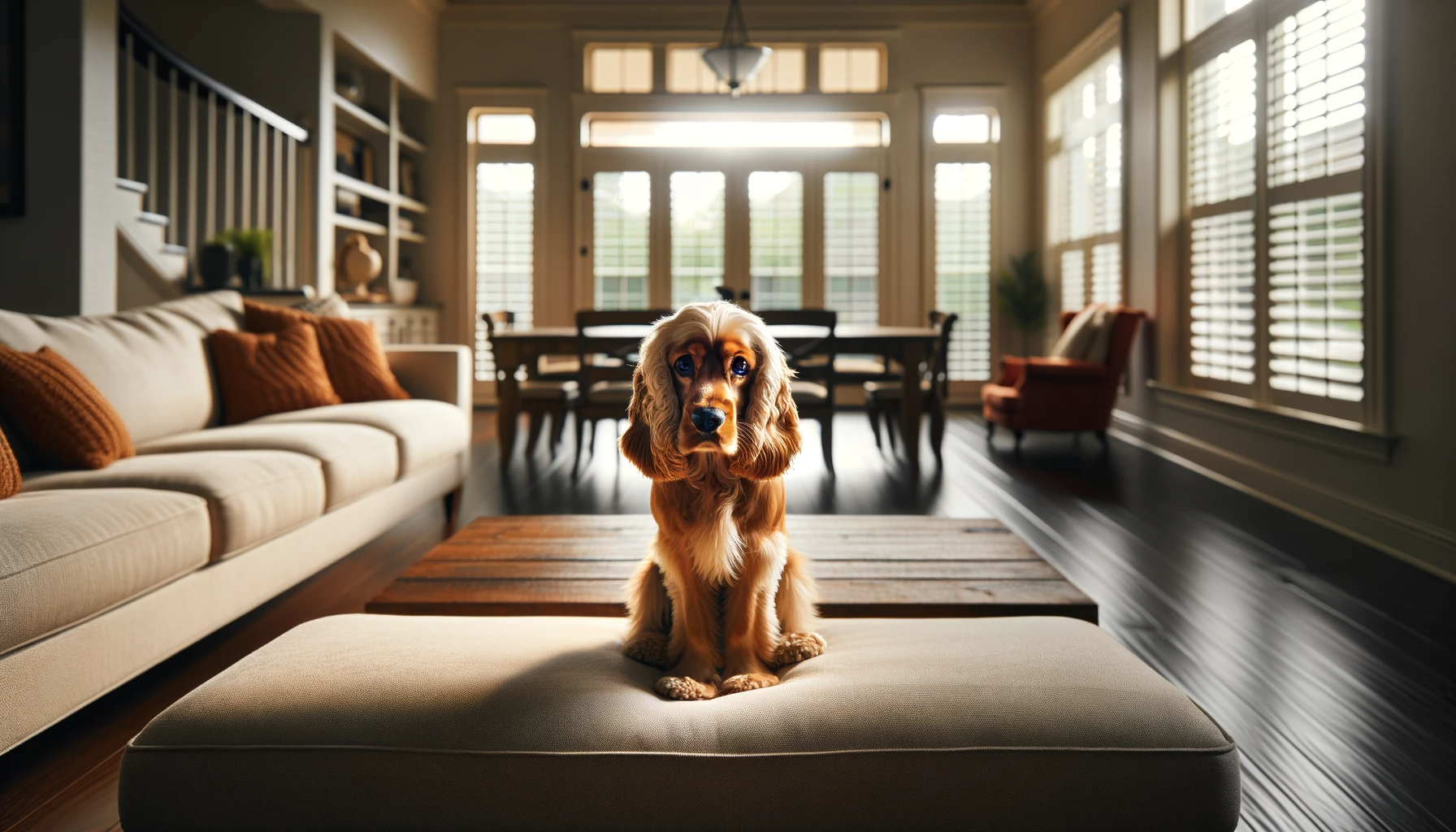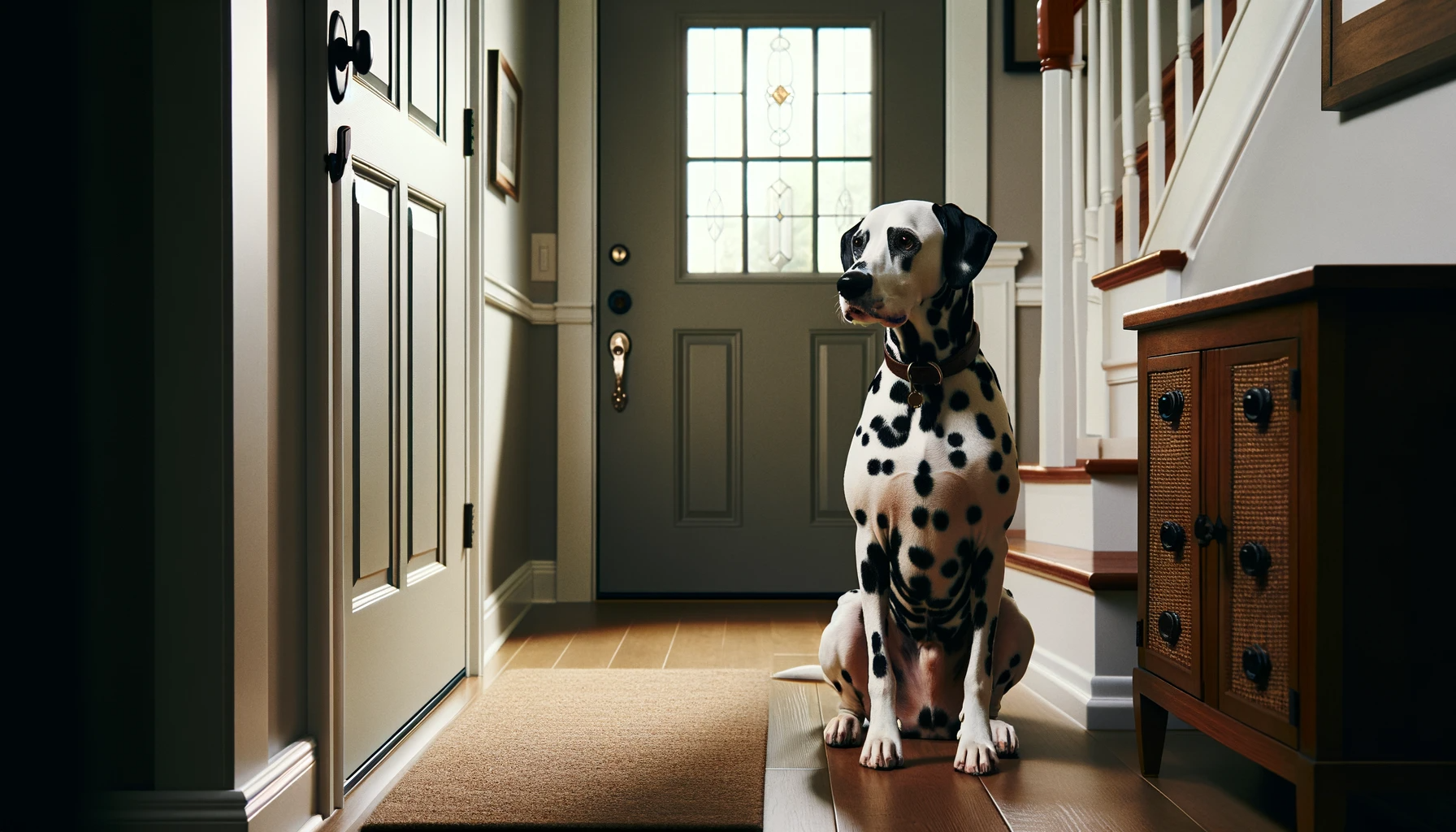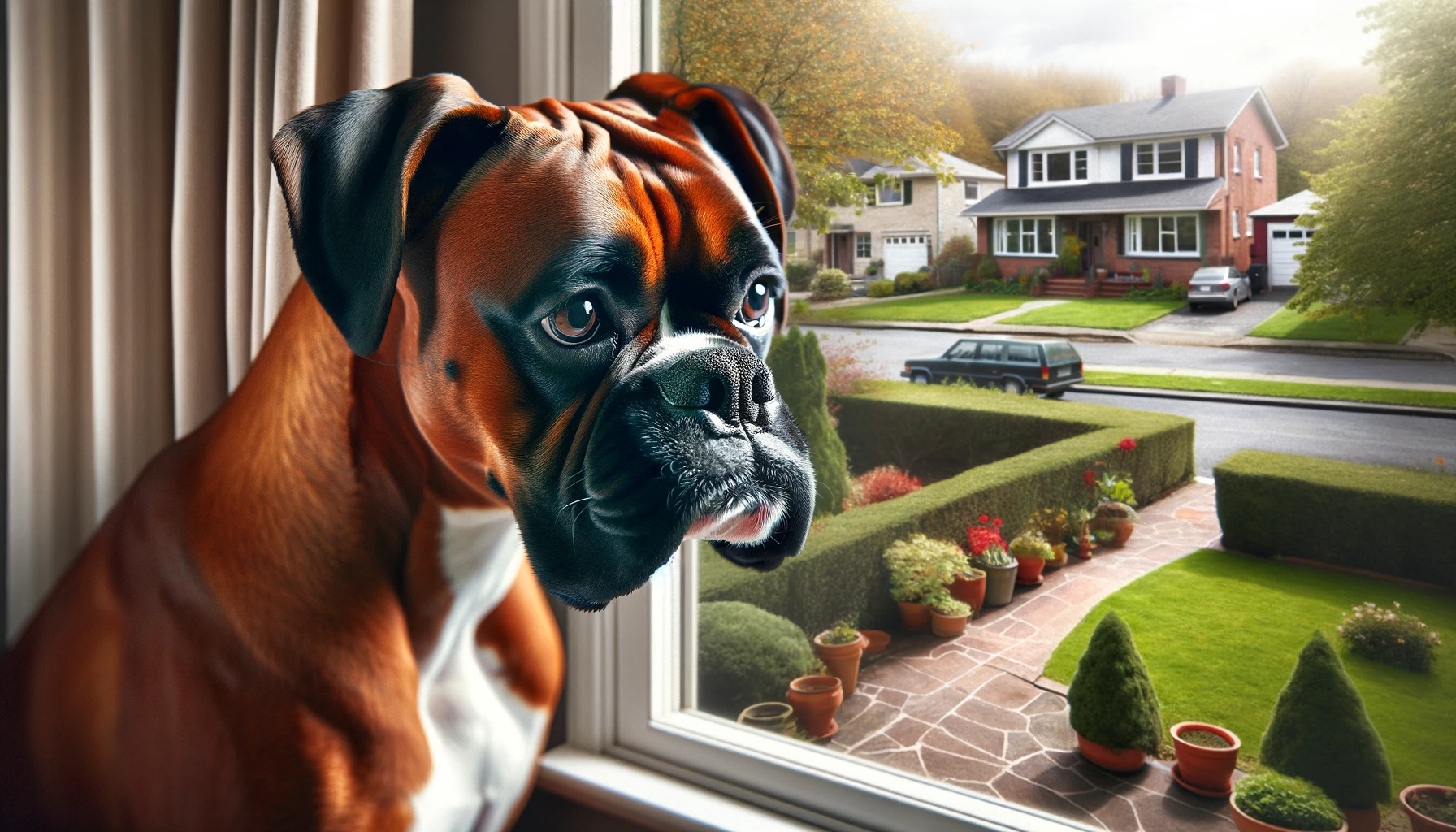Have you ever thought about trying homeopathy for separation anxiety in dogs, especially if your furry friend gets really anxious when you’re not around?
Imagine this: you’re getting ready to leave the house, and your dog starts to look worried. They know you’re going out, and their tail stops wagging. Instead of reaching for the usual treats or toys, what if you could help them feel more relaxed and happy with something natural?
Homeopathy could be a gentle way to ease their Separation anxiety.
But how exactly does it work, and can something so simple really make your dog feel better when you’re not there?
Understanding Separation Anxiety in Dogs

Separation anxiety can be tough on your furry friend. Your dog watches every day, as their favorite person in the whole world steps out the door. They can feel scared, lonely, or just plain anxious without you.
So, how do you spot the signs that your dog feels anxious about being alone?
Luckily, we’ve got that subject covered…
Signs and Symptoms
When left alone, dogs with separation anxiety may act out. You might come back to find chewed furniture or scratched doors. Your dog might bark, howl, or whine to show their stress. Look for these behaviors:
- Barking, whining, or howling persistently when alone.
- Chewing, digging, or destructive behavior, often targeted at entry and exit points.
- Drooling or panting more than usual.
- Attempting to escape the area they’re confined in, which can lead to self-injury.
- Hiding or cowering in corners, showing they’re not just being naughty—they’re scared.
Causes and Triggers
A few things can make your dog feel anxious.
Puppies might feel this way as they’re just getting used to being apart from you.
For older dogs, a big change, like moving homes, can trigger anxiety.
Dogs of any age might get stressed from loud noises like thunder.
Here’s a snapshot of common causes:
- Being left alone, especially for longer than your dog is used to.
- Changes in routine or environment, which could upset your dog’s sense of security.
- Certain breeds are more prone to anxiety; your vet can tell you if yours is one.
- A traumatic event, like a bad experience while alone, can stick with a dog just like a bad memory does with you.
Fear and stress aren’t just bad for your dog’s mood—they can impact their health too.
Principles of Homeopathy for Dogs
Homeopathy for dogs offers a holistic approach to treating various issues, including separation anxiety for dogs. It relies on using natural substances in very small amounts to help the body heal itself.
Homeopathic Philosophy
Homeopathy is based on the idea that “like cures like.” This means that a substance which might cause symptoms in a healthy dog could also help to treat an unwell dog with similar symptoms.
Homeopathic remedies are prepared from natural sources such as plants and minerals. They’re used to stimulate the dog’s own healing processes in a gentle manner.
Preparation of Homeopathic Remedies
The making of homeopathic remedies starts with a mother tincture, which is a concentrated liquid extract from a natural substance.
Through a process called potentization, this tincture is diluted repeatedly and shaken vigorously, which homeopaths believe enhances the healing properties.
Remedies then come in various forms:
- Tablets: These are dry and often need to be dissolved in your dog’s mouth.
- Liquid: This can be added directly to your dog’s mouth or mixed with their water.
The homeopathic approach is considered safe as the substances are highly diluted, minimizing the risk of side effects.
When you’re trying to help your dog with separation anxiety, working with a homeopathic vet can ensure specific and tailor-made solutions.
Selecting the Right Homeopathic Remedy

When your dog shows signs of separation anxiety, picking the correct homeopathic remedy is important.
You’ll need to assess their behavior carefully and match their symptoms to the appropriate remedy.
Behavioral Assessment
Monitor your dog’s behavior when they are alone. You can do this very easily with a baby monitor or go pro. There are even specific Pet cameras with apps that allow you to watch your dog’s antics anywhere from your phone.
Look for signs of stress and fear, like excessive barking, chewing, or restlessness.
An animal homeopath can provide you with a behavioral questionnaire to fill out.
This questionnaire will ask about your dog’s mental and physical reactions to being separated from you.
The information you give will help find the right remedy.
Remedy Selection Based on Symptoms
Homeopathy for dogs looks at the whole picture, not just one or two signs of anxiety. A remedy that works for one dog may not work for another, even if they seem similar.
It’s about matching symptoms of anxiety to specific remedies.
Here’s a simple guide:
- Mental Symptoms: If your dog gets anxious and follows you around before you leave, note that down.
- Physical Symptoms: If they drool or shake when alone, that’s important too.
Your homeopath will use this info to suggest a homeopathic remedy that can help your dog feel less anxious.
Popular Homeopathic Remedies for Canine Anxiety
If your dog seems stressed or anxious, homeopathic remedies can be a gentle way to help them feel better.
Check out these common treatments:
Pulsatilla for Clingy and Needy Dogs
Pulsatilla is often used for dogs who don’t like being alone and stick to you like glue. If your dog follows you from room to room and gets nervous when you’re out of sight, Pulsatilla might help them relax.
Aconite for Sudden Onset Anxiety
When anxiety hits suddenly, perhaps from loud noises like thunder, Aconite could be the go-to remedy. It’s good for the kind of stress that comes on fast and needs quick calming.
Ignatia for Grief and Sudden Loss
If your dog has lost a furry friend or is grieving, Ignatia can offer relief. It’s meant for a deep kind of sadness and helps with heartache.
Rescue Remedy for General Stress
For all kinds of stress, Rescue Remedy is a mix of different plant extracts that can help your dog chill out. It’s a general go-to for anything from vet visits to big moves.
Administering Homeopathic Treatments
When you give your dog homeopathic treatment for separation anxiety, it’s important to get the dosage right and watch how they respond.
Dosage and Frequency
For homeopathic remedies, dosage often doesn’t depend on your dog’s size. Instead, it’s about the frequency and the remedy’s potency.
Potentized medication is very diluted, making it safe for your dog. You usually give these remedies as small pellets or in liquid form with a little alcohol.
Always start with the dosage your vet suggests. This might be a few pellets or drops a few times a day.
Monitoring and Adjusting Treatment
Keep an eye on your dog’s symptoms of anxiety after starting the treatment. Are they calmer?
If there’s no change, your veterinary clinic can help adjust the treatment. Sometimes, a different remedy or dose works better.
Side effects are rare with homeopathic treatments, but if you see something odd, talk to your vet. It’s all about finding a safe and personal plan for your furry friend.
Lifestyle and Environmental Modifications

When your dog shows signs of separation anxiety, you can help them by changing their lifestyle and the place they live.
Small shifts in how you care for your dog can make a big difference in their happiness and calmness.
Exercise and Diet
Dogs need regular exercise to burn off energy and stay healthy. Make sure your furry friend gets plenty of playtime and walks.
This helps reduce their nervousness and keeps them fit.
Your dog’s diet matters, too. An organic, well-balanced meal plan supports their overall health.
It can also affect how they feel and act.
- Daily Exercise: Aim for at least 30 minutes twice a day
- Diet: Include natural, whole foods that are suitable for their breed and age
Environmental Enrichment
Your dog loves to play and explore, just like you. They need an environment that’s fun and interesting.
Think about their space at home. Give them toys that keep their minds busy. This can help your dog feel more relaxed when you’re not at home.
An interactive environment helps dogs feel part of the pack and less alone.
- Toys: Offer a mix of interactive toys that challenge your dog
- Safe Space: Create a cozy area in your home where your dog can feel secure
Potential Challenges and Considerations
Using homeopathy for separation anxiety in dogs can be a game changer, but sometimes we need to know when it’s time to get some extra help.
Understanding Limitations of Homeopathy
Homeopathy believes in treating your dog in a unique way, but knowing its limits is also important.
Always consider that just like with any treatment, disease, injuries, and allergies may not respond to homeopathic remedies.
When to Seek Professional Help
If your furry friend’s separation anxiety doesn’t improve or gets worse, it’s time to visit a veterinary clinic.
A vet can figure out if your dog’s anxiety is a behavioural disorder or something else, like an illness.
They can give professional help, reviewing all the options, including safe and effective medications.
While homeopathy can be part of your approach, relying solely on it might not be enough for every dog.
Final Thoughts About Homeopathy for Separation Anxiety in Dogs
Homeopathy for separation anxiety in dogs isn’t just about giving your pet some medicine; it’s about understanding and caring for them in a special way.
Imagine being able to help your furry best friend feel safe and happy, even when you’re not around. That’s what homeopathy aims to do.
keep in mind that dogs are as unique as people – what helps one dog may not be the right fit for another.
It’s like solving a puzzle — finding the perfect piece that fits your dog’s needs.
So, think about it: Could homeopathy be the missing piece in helping your dog feel less lonely?
And what else could you do to make sure your four-legged buddy always feels loved and secure?
Frequently Asked Questions
Exploring homeopathy for your dog’s separation anxiety?
Here are the answers to some common questions.
What natural homeopathic remedies help with canine separation anxiety?
Homeopathic remedies like Pulsatilla and Phosphorus may ease your dog’s nervousness. They often work by promoting calmness.
Are there quick ways to alleviate my dog’s separation anxiety using homeopathy?
Remedies like Aconitum or Argentum Nitricum can offer fast relief. Yet, they work best when matched with your dog’s specific symptoms.
How can I train my dog to cope with separation anxiety?
Training involves gradual exposure to being alone. Reward their calm behavior to reinforce that alone time is safe.
What are the best treatments available for dogs experiencing severe separation anxiety?
For severe cases, a vet may prescribe a mix of homeopathy, behavior modifications, and possibly medications. Professional guidance is key.
Can CBD oil be effective in treating separation anxiety in dogs?
CBD oil may help dogs relax. But you should talk to your vet first before trying it.
What homeopathic options are available for hyperactive dogs with anxiety issues?
Homeopathic options for hyperactivity and anxiety include remedies like Chamomilla and Valeriana. They aim to soothe and settle hyperactive behavior.
Disclaimer
All information in this article is for educational purposes only and is not meant to replace your veterinarian's advice.Jen is the founder of anxiouscanine.com, a leading resource for managing and treating anxiety in dogs. With over a decade of experience in working with rescue dogs, Jen holds diplomas in Understanding Canine Anxiety, Canine Holistic Health & Therapy, CBD Oil for Animals, and Zoopharmacognosy. Her expert insights help dog owners navigate the challenges of anxiety with compassionate, innovative solutions. Follow Jen’s guidance at Anxious Canine for a calmer, happier dog.